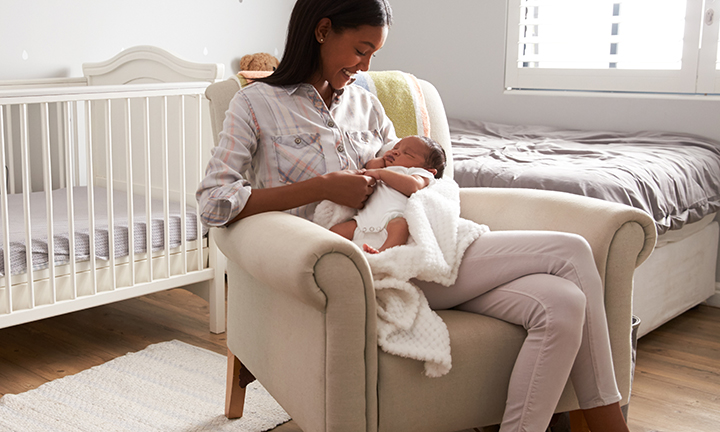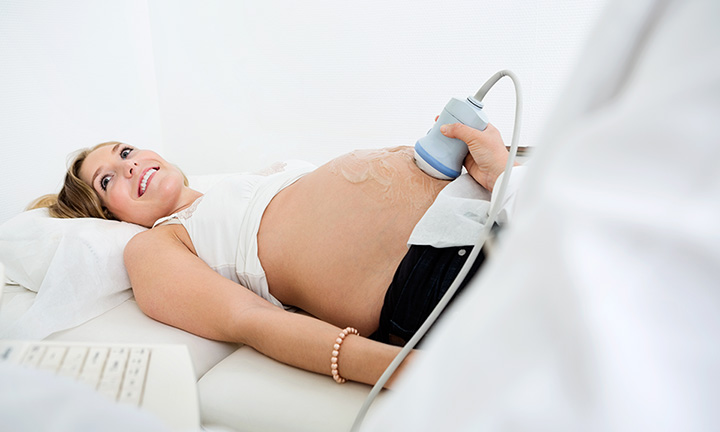
Braxton Hicks Contractions: What Do They Feel Like?
If you experience contractions in the second or third trimester that go away without leading to labour you might be wondering what these are, and how you’ll be able to tell when you’re actually in labour.
These ‘practice contractions’ are called Braxton Hicks contractions, and they're one of the ways your body gets ready for labour. Find out all about what a Braxton Hicks contraction is and how to tell the difference between these and the real thing.
What Are Braxton Hicks Contractions?
Sometimes also known as ‘false’ or ‘practice’ contractions, Braxton Hicks contractions (named after the doctor who first described them) are not actual labour contractions, although – like real labour contractions – they too are caused by the muscles of the uterus tightening.
Braxton Hicks contractions help your body prepare for birth by tightening and relaxing the uterine muscles, although they're not actually opening the cervix. This dilation of the cervix will only happen when true labour contractions start.
What Do Braxton Hicks Contractions Feel Like?
What are the symptoms of Braxton Hicks? Braxton Hicks contractions may be uncomfortable sometimes, but they aren’t usually painful. When a practice contraction starts, the top of your uterus (the fundus) starts to harden, and then this feeling of tension spreads gradually downwards.
So, how long do Braxton Hicks last? The sensation of Braxton Hicks can usually last between 30 and 60 seconds before the muscles in your uterus relax again.
Braxton Hicks contractions come at irregular intervals, so you may experience them once a day or they may be even less frequently than that, or they could come several times in an hour.
Luckily, there are a few ways to help ease the discomfort of these contractions while also confirming that labour hasn't started yet:
When Do Braxton Hicks Contractions Start?
Braxton Hicks contractions are actually happening all through your pregnancy, you just don’t always feel these practice contractions.
Although you might start noticing them as early as the second trimester, you’re most likely to start experiencing them in the third trimester. So, whether you’re at 24, 26 or 30 weeks, for example, Braxton Hicks contractions are normal.
Some pregnant people don’t experience Braxton Hicks contractions until just before labour, so don’t worry if you haven’t felt any so far – this is normal too.
What Can Trigger Braxton Hicks Contractions?
Practice contractions can happen for no apparent reason, and aren’t always triggered by anything in particular, but it’s thought that some things can help to set them off. If you’re wondering what might trigger them or you’re asking, ‘Why am I having so many Braxton Hicks contractions?’, some reasons might include:
If you have any concerns about the frequency of your Braxton Hicks contractions or you’re wondering if you’re experiencing Braxton Hicks or labour contractions, read the below section for more information.
How to Tell the Difference Between Braxton Hicks and Real Labour Contractions
If you notice a tightening of the muscles inside your belly before the end of your 37th week of pregnancy, you might wonder if you’re going into premature labour.
Later, if your pregnancy is full term, you might be wondering whether the contraction you’re feeling is just another Braxton Hicks or if it’s finally the real deal.
To help avoid this kind of uncertainty, it helps to know what Braxton Hicks contractions feel like compared to true labour contractions. So, if you’re wondering ‘Where do you feel Braxton Hicks?’ or ‘Do frequent Braxton Hicks mean labour is soon?’ we’ve got the answers. Read up on what contractions feel like and try keeping the following differences in mind:
Ask your midwife or doctor for advice if you're still not sure whether you're experiencing Braxton Hicks or true labour contractions. If you notice any of the following signs of labour call your midwife or doctor straight away:
When to be Concerned About Braxton Hicks
Braxton Hicks contractions are a normal part of pregnancy that many women experience. They’re not usually a cause for concern. As we mentioned above, it’s a good idea to become familiar with the differences between Braxton Hicks contractions and real labour contractions.
If have vaginal bleeding, you’re concerned about your baby’s movements, or you notice any of the signs of labour that we listed above, such as your contractions becoming more intense and frequent, contact your midwife or doctor immediately.
FAQS AT A GLANCE
Unlike true labour contractions, Braxton Hicks aren’t usually painful. They’re generally irregular contractions that don’t progress over time. You may feel some discomfort when your uterine muscles contract, but this usually lasts only 30 to 60 seconds.
If your contractions are painful or regular, or you experience any other signs of labour, contact your midwife or doctor straight away.
The Bottom Line
Braxton Hicks contractions can cause a little discomfort, but don’t panic – they’re a completely normal part of pregnancy. Every practice contraction is helping your body prepare for the big day when you do go into labour.
How We Wrote This Article The information in this article is based on the expert advice found in trusted medical and government sources, such as the National Health Service (NHS). You can find a full list of sources used for this article below. The content on this page should not replace professional medical advice. Always consult medical professionals for full diagnosis and treatment.
Read more about Pregnancy
Related Articles
Join Pampers Club and get:













